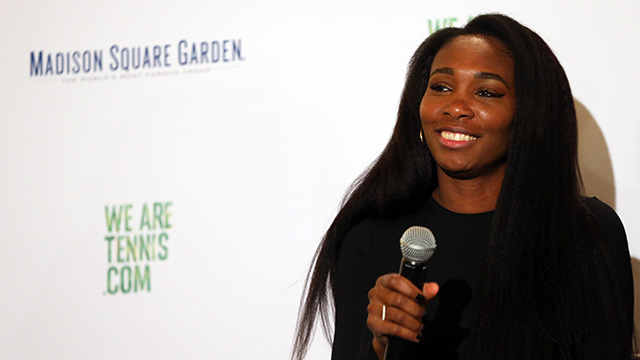Photos | WTA Tennis English

Before heading to the desert for Indian Wells, Garbiñe Muguruza and Venus Williams stopped at New York City’s Madison Square Garden for the BNP Paribas Showdown.

Played in honor of World Tennis Day, the 10th anniversary of the BNP Paribas showdown was a night of exhibition matches that pitted the world’s best players against each other.

Venus and Garbiñe were joined by some of the ATP’s past and present stars like: Jack Sock, Juan Martin del Potro, Andy Roddick, Nick Kyrgios, Kei Nishikori and Lleyton Hewitt.

Before the Showdown, the players took to the JW Marriott Essex House for a meet and greet, where they signed lots of autographs.

This year’s Showdown pitted Team America against Team World. Garbiñe and Kei represented Team World, alongside Nick Kyrgios and Lleyton Hewitt…

…with Venus and Andy representing Team America, alongside Jack Sock and Juan Martin del Potro.

Madison Square Garden was packed on Monday night as the BNP Paribas Showdown kicked off.

Players take the court for a night of fun and world-class tennis.

Venus teamed up with Juan Martin for mixed doubles.

They took on Team World’s Garbiñe and Kei.

It was Team World who emerged victorious, winning 5-3 against America.

In fact, it wasn’t a good day at the office for Team America, as Team World won almost every match.

Venus rescued Team America from a total shutout, though.

She beat Garbiñe 5-4 for Team America’s lone win.


